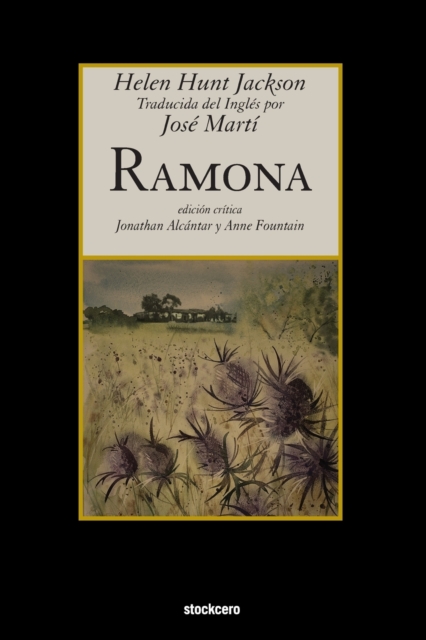Ramona

Ramona
José Martí (1853-1895), one of the most distinguished authors, intellectuals and national heroes of the 19th century Latin America, offers in Ramona (1888) a literary translation that stands out for its aesthetic brilliance and ideological content, a unique text in the copious Marti work that, despite being a reflection of the concerns and conflicts of its time, still maintains a relevance and validity in our days.
Originally published in 1884 by the famous American activist and writer Helen Hunt Jackson (1830-1885), Ramona would enter the annals of US history as the most representative novel of the so-called indigenous reform movement of the 1880s, becoming Jackson's latest attempt to denounce the mistreatment and policies of the federal government towards the indigenous tribes of his country.
With more than 300 editions in English, a myriad of cultural adaptations and its colossal impact on tourism in Southern California, this great classic of American literature has never stopped being reissued in more than a century.
Although Marti was a connoisseur of Jackson's cause in favor of the North American Indian, the Cuban thinker glimpsed another meaning through the pages of this book, postulating his translation of Ramona as "our novel."
During his exile in New York he translated the novel arduously, and even paid for its publication to be distributed in Mexico.
The plot that revolves around the interracial romance of the Indian, Alejandro, and the mestizo heroine, Ramona, serves to illustrate the hardships endured by the Indian and Mexican communities at the arrival of the white settlers just after the US intervention war in Mexico and the session of California and the rest of the Southwest to the United States.
130 years after its publication, the reading and study of Marti's Ramona is essential today more than ever to learn from the past and encourage the construction of bridges and dialogues between all the peoples of the two Americas.
PRP: 247.38 Lei
Acesta este Prețul Recomandat de Producător. Prețul de vânzare al produsului este afișat mai jos.
222.64Lei
222.64Lei
247.38 LeiLivrare in 2-4 saptamani
Descrierea produsului
José Martí (1853-1895), one of the most distinguished authors, intellectuals and national heroes of the 19th century Latin America, offers in Ramona (1888) a literary translation that stands out for its aesthetic brilliance and ideological content, a unique text in the copious Marti work that, despite being a reflection of the concerns and conflicts of its time, still maintains a relevance and validity in our days.
Originally published in 1884 by the famous American activist and writer Helen Hunt Jackson (1830-1885), Ramona would enter the annals of US history as the most representative novel of the so-called indigenous reform movement of the 1880s, becoming Jackson's latest attempt to denounce the mistreatment and policies of the federal government towards the indigenous tribes of his country.
With more than 300 editions in English, a myriad of cultural adaptations and its colossal impact on tourism in Southern California, this great classic of American literature has never stopped being reissued in more than a century.
Although Marti was a connoisseur of Jackson's cause in favor of the North American Indian, the Cuban thinker glimpsed another meaning through the pages of this book, postulating his translation of Ramona as "our novel."
During his exile in New York he translated the novel arduously, and even paid for its publication to be distributed in Mexico.
The plot that revolves around the interracial romance of the Indian, Alejandro, and the mestizo heroine, Ramona, serves to illustrate the hardships endured by the Indian and Mexican communities at the arrival of the white settlers just after the US intervention war in Mexico and the session of California and the rest of the Southwest to the United States.
130 years after its publication, the reading and study of Marti's Ramona is essential today more than ever to learn from the past and encourage the construction of bridges and dialogues between all the peoples of the two Americas.
Detaliile produsului










